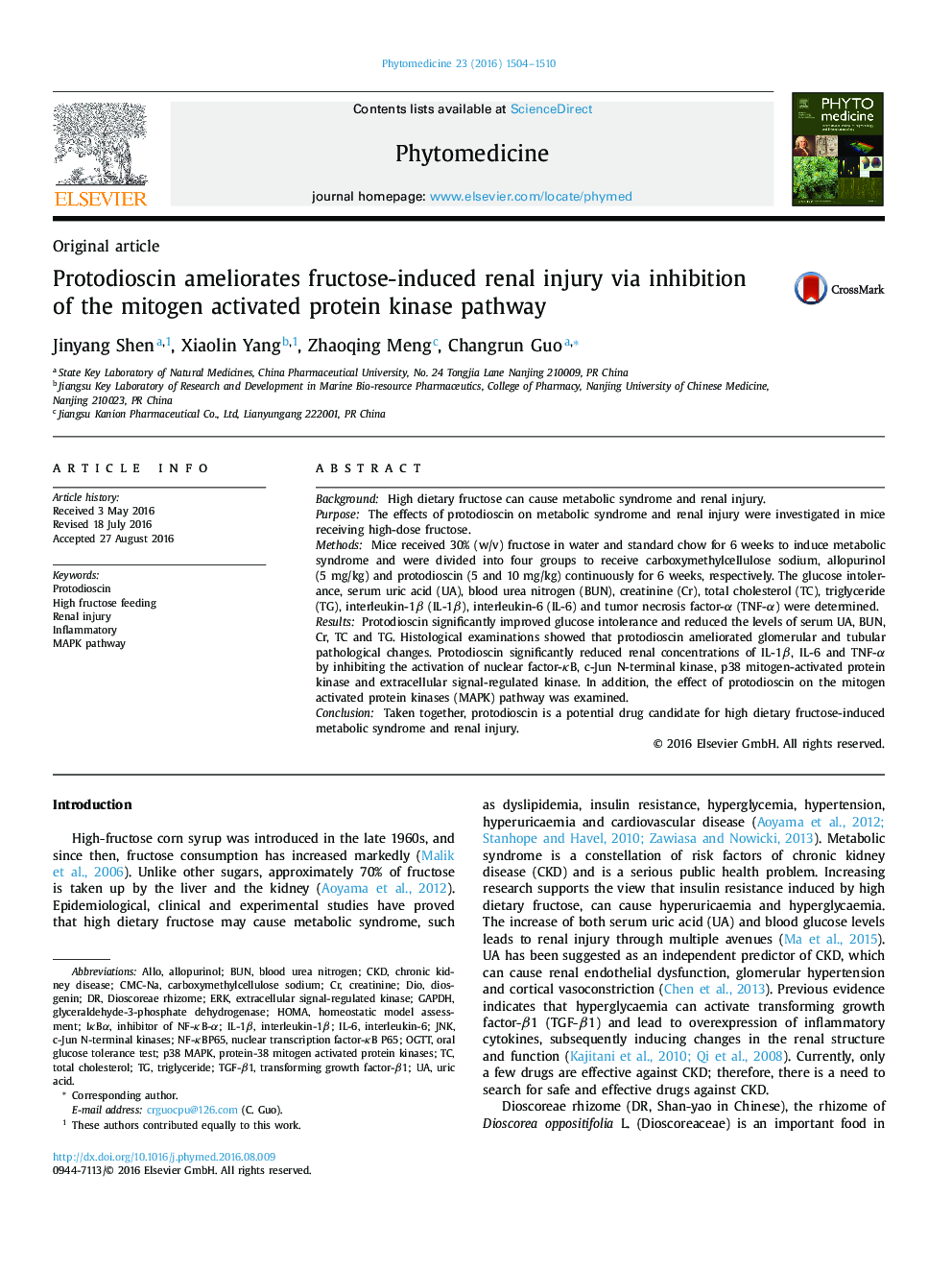| Article ID | Journal | Published Year | Pages | File Type |
|---|---|---|---|---|
| 5549374 | Phytomedicine | 2016 | 7 Pages |
BackgroundHigh dietary fructose can cause metabolic syndrome and renal injury.PurposeThe effects of protodioscin on metabolic syndrome and renal injury were investigated in mice receiving high-dose fructose.MethodsMice received 30% (w/v) fructose in water and standard chow for 6 weeks to induce metabolic syndrome and were divided into four groups to receive carboxymethylcellulose sodium, allopurinol (5 mg/kg) and protodioscin (5 and 10 mg/kg) continuously for 6 weeks, respectively. The glucose intolerance, serum uric acid (UA), blood urea nitrogen (BUN), creatinine (Cr), total cholesterol (TC), triglyceride (TG), interleukin-1β (IL-1β), interleukin-6 (IL-6) and tumor necrosis factor-α (TNF-α) were determined.ResultsProtodioscin significantly improved glucose intolerance and reduced the levels of serum UA, BUN, Cr, TC and TG. Histological examinations showed that protodioscin ameliorated glomerular and tubular pathological changes. Protodioscin significantly reduced renal concentrations of IL-1β, IL-6 and TNF-α by inhibiting the activation of nuclear factor-κB, c-Jun N-terminal kinase, p38 mitogen-activated protein kinase and extracellular signal-regulated kinase. In addition, the effect of protodioscin on the mitogen activated protein kinases (MAPK) pathway was examined.ConclusionTaken together, protodioscin is a potential drug candidate for high dietary fructose-induced metabolic syndrome and renal injury.
Graphical abstractDownload high-res image (206KB)Download full-size image
